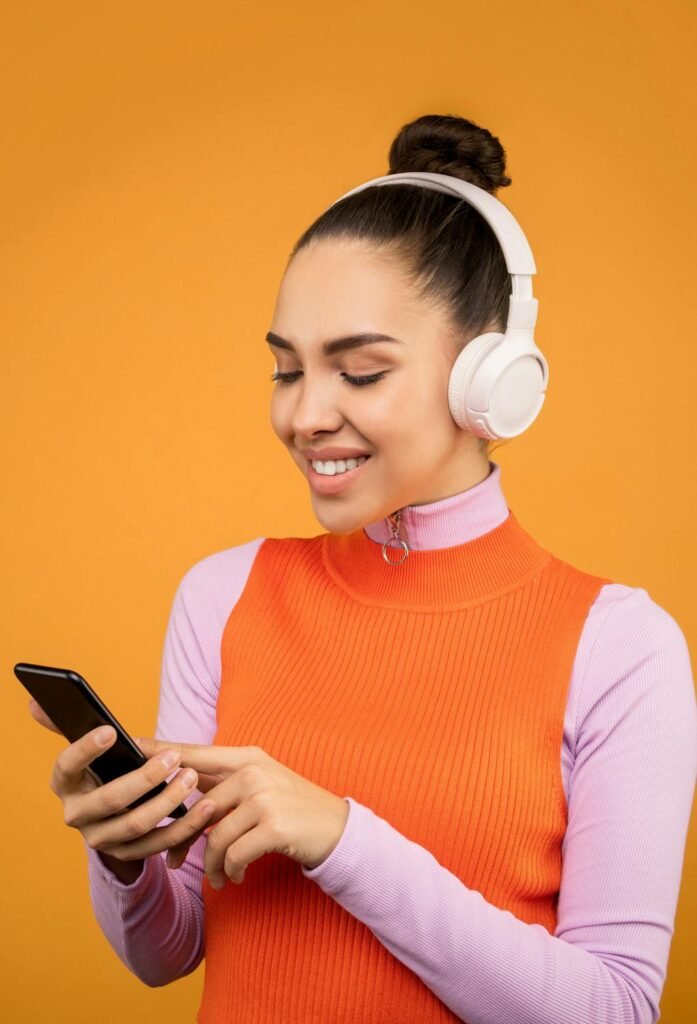“AI-Driven Personalization Apps: Revolutionizing Consumer Experiences in 2025”

Artificial intelligence (AI) is revolutionizing personalization in consumer products, offering tailored experiences that resonate with individual needs. From wearables to beauty solutions, AI-powered technologies are delivering predictive and proactive features that enhance usability and satisfaction.
Personalized Wearables
Wearable devices are becoming smarter and more intuitive, thanks to AI-driven personalization. These devices analyze user-specific data, such as health metrics and activity patterns, to provide customized insights. For example:
- Fitness trackers now offer tailored workout suggestions based on individual goals.
- Smartwatches integrate AI to deliver personalized notifications and health monitoring features like ECG and blood oxygen tracking.
Beauty Solutions Enhanced by AI
The beauty industry is leveraging AI to transform product recommendations and skincare routines. AI algorithms analyze skin conditions, preferences, and environmental factors to suggest personalized treatments or products. Virtual try-on tools powered by augmented reality (AR) further enhance the shopping experience, allowing users to visualize products before purchase.
Predictive Personalization
AI excels at predicting consumer needs by analyzing vast amounts of data, including browsing behavior and purchase history. This capability enables:
- Real-time product recommendations tailored to individual preferences.
- Customized content creation for marketing campaigns that resonate deeply with target audiences.
Proactive Engagement
AI’s ability to anticipate user needs ensures proactive engagement, making interactions feel seamless and valuable. For example:
- Spotify uses AI to curate playlists based on listening habits.
- Retailers like Sephora employ AI tools to recommend beauty products aligned with customer profiles.
By integrating AI-driven personalization, brands can foster stronger connections with consumers while improving satisfaction and loyalty. This innovative approach is shaping the future of consumer technology across industries.
Here are examples of company products, along with brief descriptions:
Consumer Wearables
- Garmin Instinct 3
A smartwatch featuring solar technology for extended battery life, built-in flashlight, and contactless payment capabilities, ideal for outdoor enthusiasts and fitness tracking. - Noise Luna Ring Gen 2
A smart ring that tracks health metrics like sleep, heart rate, and temperature without requiring a subscription model. - Oura Smart Ring
A sleek wearable focused on sleep and activity tracking, providing actionable insights for better health management.
Beauty and Cosmetics
- AI Beauty Solutions
Offers virtual consultations, personalized skincare recommendations, and beauty treatment simulations powered by AI to enhance user experience. - Perfect Corp’s AI Skin Diagnostic Tool
Analyzes skin conditions using advanced AI algorithms to recommend tailored skincare products and routines. - CureSkin App
Provides instant skin assessments through AI-powered image recognition, offering personalized treatment plans for various skin concerns.
AI-Driven Wearable Technology
- Wearable Devices Neural Wristband
Uses AI-powered gesture control technology to enable seamless interactions with XR devices, smartwatches, and AR glasses through personalized micro-gestures.
These innovations highlight the integration of AI across wearables and beauty products, providing tailored solutions for consumers while enhancing user engagement
Personalized Wearable Apps
Wearable devices are becoming smarter with AI-driven personalization, analyzing user-specific data to provide customized insights:
- Fitbit Coach App offers personalized fitness recommendations based on activity patterns.
- Apple Health App integrates AI for health monitoring and tailored notifications.
Beauty Apps Enhanced by AI
The beauty industry is leveraging AI for personalized product recommendations and skincare routines:
- Sephora’s Virtual Artist App uses AR to allow users to virtually try on makeup before purchasing.
- YouCam Makeup App analyzes skin conditions to suggest personalized treatments.
Predictive Personalization in Apps
AI excels at predicting consumer needs by analyzing vast amounts of data, enabling real-time engagement:
- Netflix App uses AI to suggest movies and shows based on viewing history.
- Spotify App creates personalized playlists like “Discover Weekly” using AI-driven recommendations.
Proactive Engagement through Apps
AI’s ability to anticipate user needs ensures proactive engagement, making interactions feel seamless and valuable:
- Coca-Cola’s Freestyle App uses AI to create dynamic marketing content tailored to consumer preferences.
- Nike Training Club App enhances fitness routines with hyper-personalized workout recommendations across multiple touchpoints.
By integrating AI-driven personalization in apps, brands can foster stronger connections with consumers while improving satisfaction and loyalty. This innovative approach is shaping the future of consumer technology across industries.


